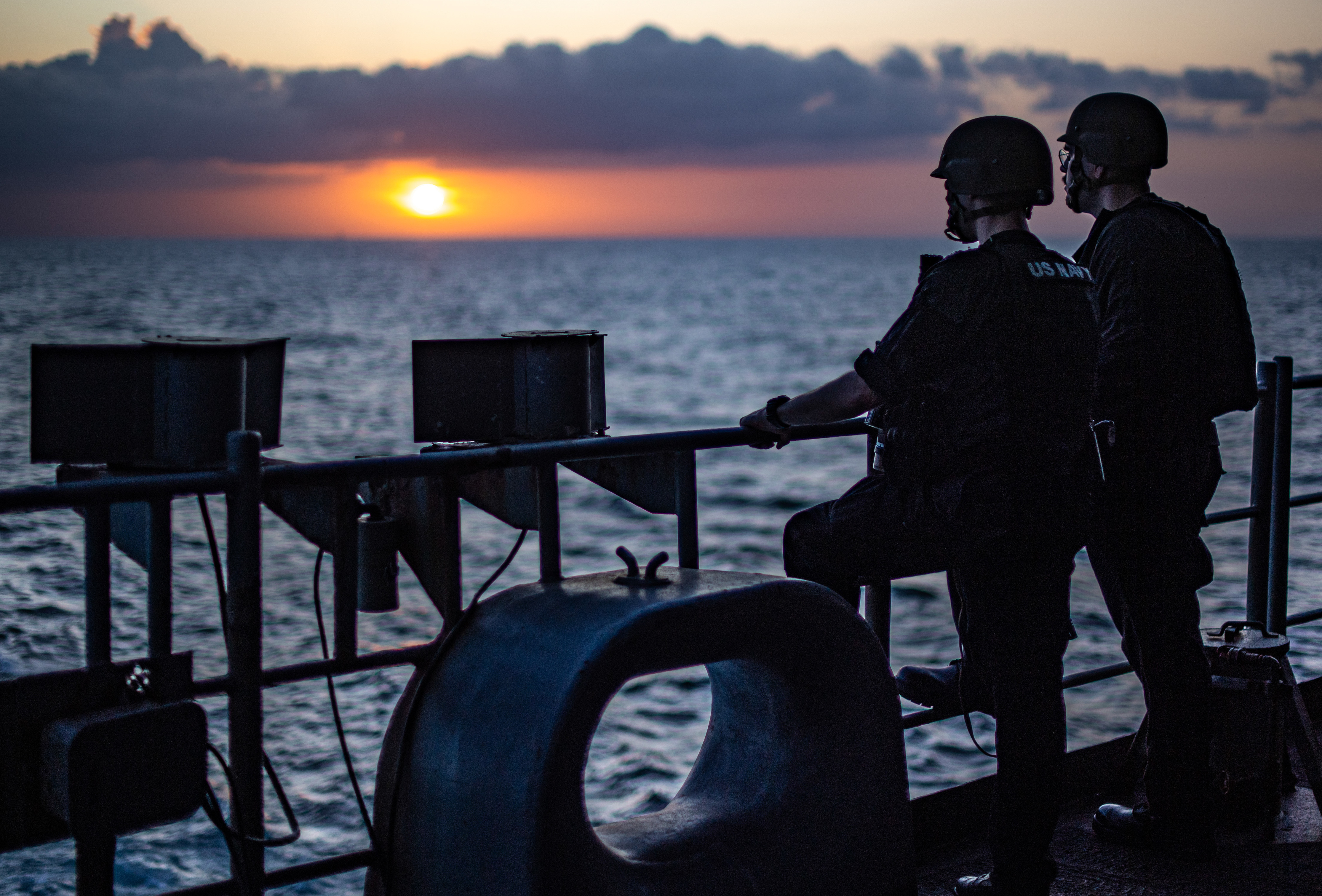
A program within Navy medicine, born out of fatal Western Pacific collisions in 2017, wants to connect sailors with resources following non-combat-related trauma.
Organizational Incident Operational Nexus, called ORION, is a Bureau of Medicine and Surgery program following the separate collisions of guided-missile destroyers USS Fitzgerald (DDG-62) and USS John McCain (DDG-56) that resulted in the death of 17 sailors. Since its inception, the program has helped 2,200 sailors deal with non-combat trauma, according to the service.
ORION fills a gap identified after the two collisions, said Adeline Ong, director of the Naval Center for Combat and Operational Stress Control. There were a myriad of resources in the acute response to the collisions, targeted to help sailors with the psychological stress from the traumatic event. But what BUMED did not have was a way to track sailors and help them connect with resources if they needed them later, Ong told USNI News.
ORION started as a pilot program with a team created to email and call sailors involved in collisions. The team would then ask the sailors how they were doing and if they needed help getting resources, Ong said. It was voluntary to talk with the coordinators, but the team found that by calling and emailing, they were able to help connect about 20 percent of sailors with resources they may have struggled to get otherwise
“It’s definitely a challenging system to try to figure out what resources do I have,” Ong said. “What care can I access? How do I get help? And so these caring touch points, I think, definitely help the sailors know that ‘oh, somebody cares for me and there is somebody that can help me figure this out, help me get connected to a resource or care’.”
That was the beginning of Orion, which was implemented as a Navy-wide program in 2021.
Now, it serves as a command unit-level tool, where commands can reach out after a non-combat-related trauma.
The ORION program has three full-time care coordinators, Ong said. After a trauma, such as a death or an event where a death could have occurred, a unit commander could reach out to see if ORION could help sailors with accessing care. ORION could be used after a training mishap or a suicide, Ong said.
If it is a situation that fits ORION’s criteria, then the commander would provide the care coordinators with a list of sailors who they have identified as being higher risk for stress or needing additional help. Depending on risk, the care coordinators would then contact the sailors over the year to check in and help connect them with additional resources.
“So ORION, it fills another gap for kind of operational stress, routine operational stressors and traumatic things that could happen in non-combat deployments or non-combat-related situations,” Ong said.
Sailors and Marines who ORION coordinators contact fall into three categories, Ong said. There are those who had close exposures, like first responders or victims, those who had proximal exposures, such as a person’s supervisor, and other members, like friends. They are then separated by risk. A person who has already been diagnosed with a mental health disorder would be at higher risk and receive more check-ins over the year versus someone determined to be lower risk, Ong said.
“Again, it’s to keep it non-clinical, very friendly, very open and just to let them know this is voluntary. This is a tool to support you. And we’re here to help you navigate the system if you do want access or help connecting with a resource or mental health care,” she said.
After a trauma, there tends to be a lot of support and resources in the acute phase, Ong said. But that goes away with time. ORION serves as a way to continue to offer support and track sailors and Marines.
In the acute phase, some sailors and Marines might not be in the right headspace to access resources or remember the information about the services, she said. Before ORION, if they wanted help after the acute phase had passed, it could be a struggle to figure out where to go.
“And so this program is definitely important in being able to check back with sailors and Marines who have experienced a traumatic event to just just again ask them, ‘How are you doing? Do you want help? Do you need help getting connected with a resource or with care?’” Ong said.





